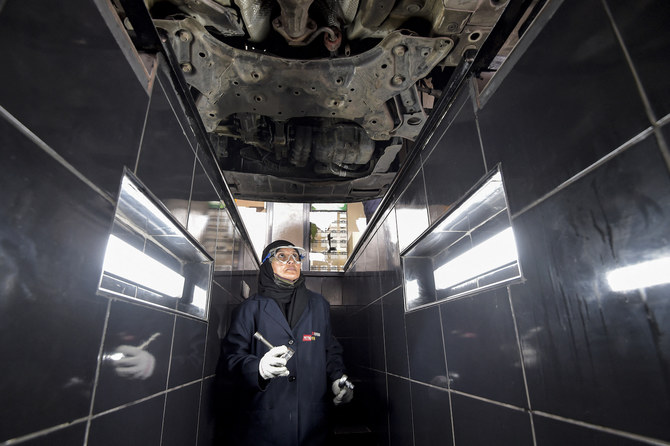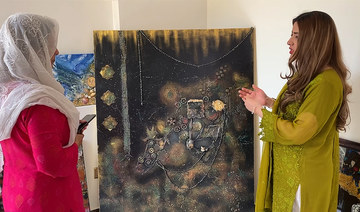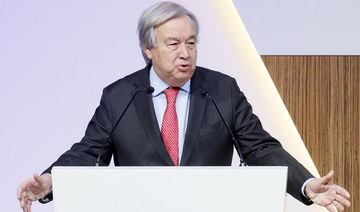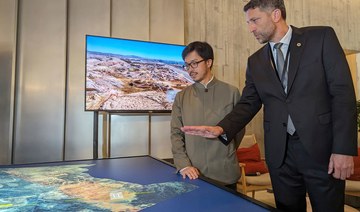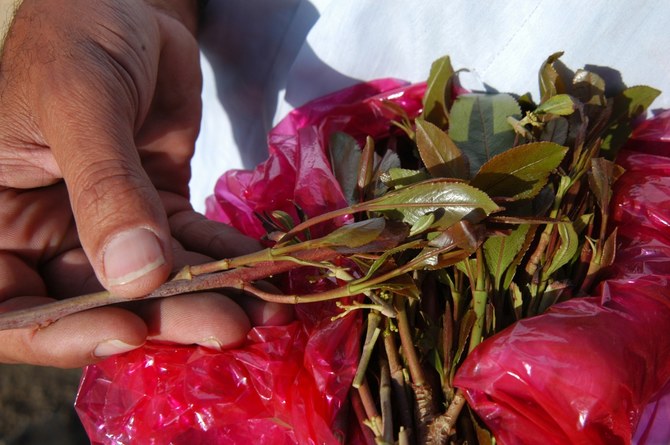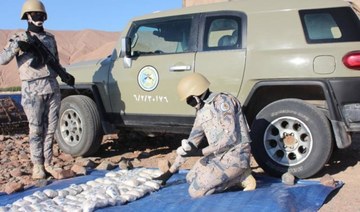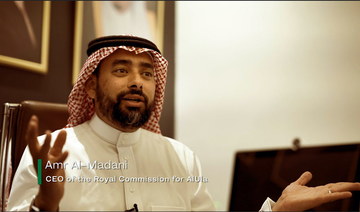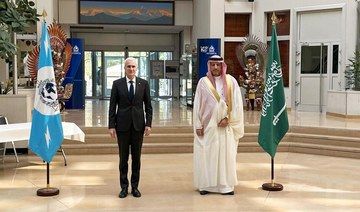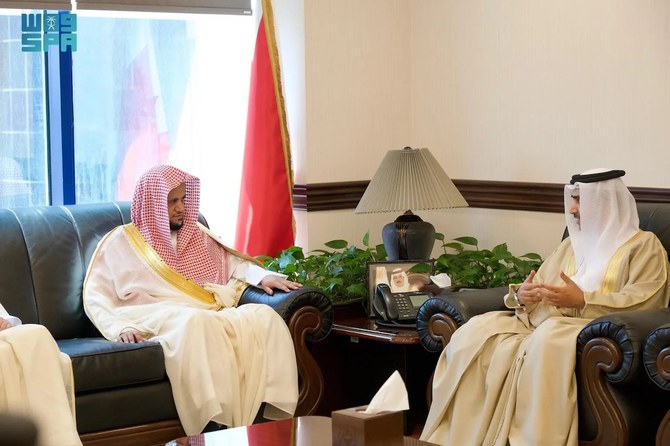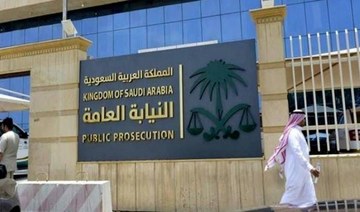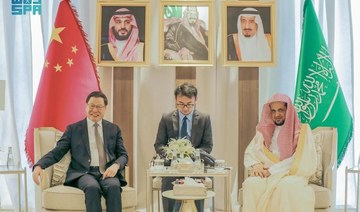JEDDAH: Over the course of the past decade, Saudi women have stepped into the limelight, with thousands entering study and the workforce for the first time, succeeding in traditionally male-dominated industries, and taking on leadership roles.
All over the world, across many different cultures, women have faced social stigma and professional hurdles, routinely sidelined in public life, often in the name of religion and custom. For many years, the same was true in Saudi Arabia.
Authorities had twisted the basic teachings of Islam, when in fact these teachings had granted women equal status and prominent positions in society long before the concepts of human rights and gender equality were written into law.
Since the implementation of reforms by King Salman and Crown Prince Mohammed bin Salman over the past few years, Saudi women have regained their rightful place in society and the workforce, putting their skills to the test in almost every sector imaginable.
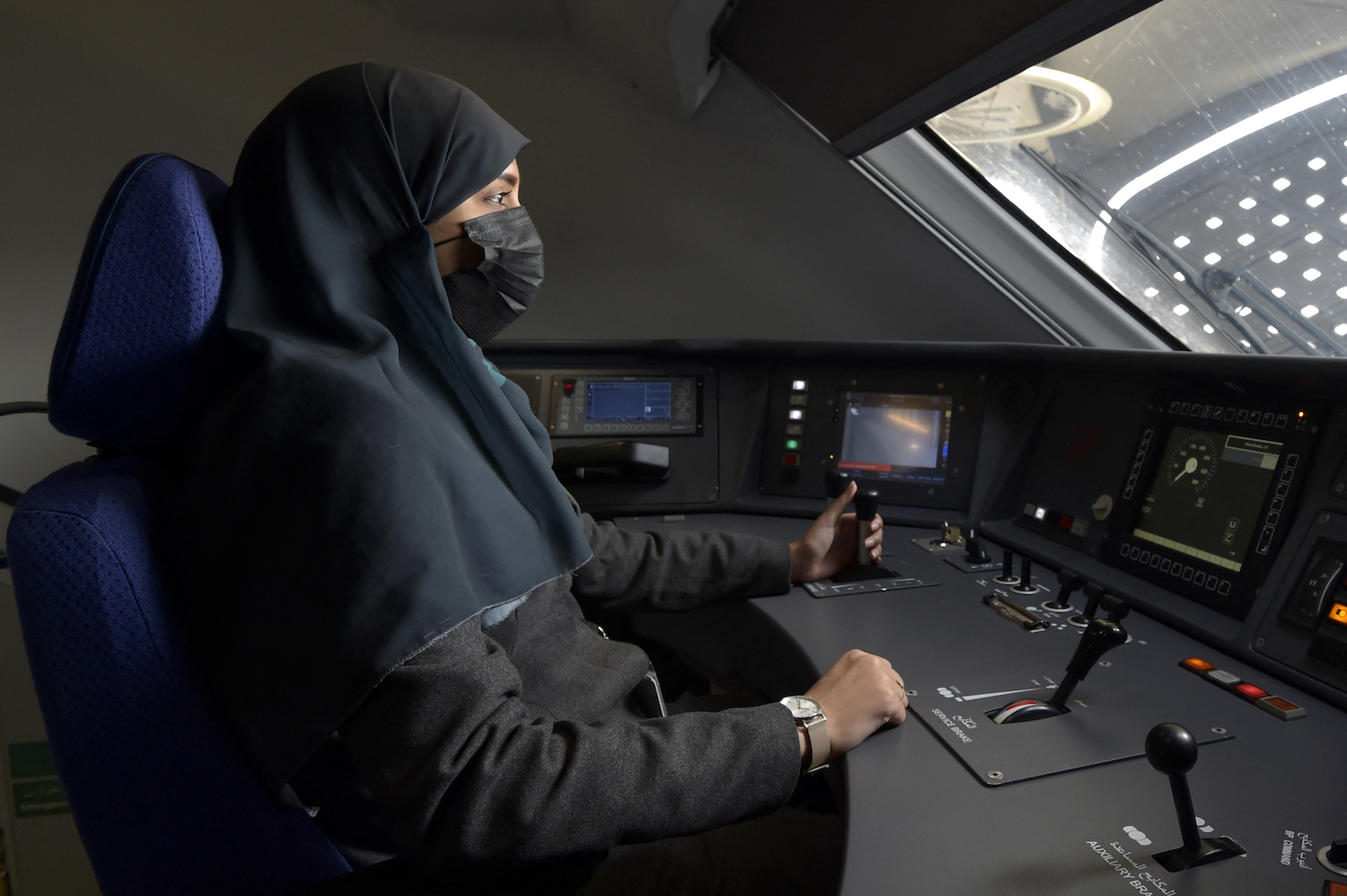
Saudi conductor Raneem Azzouz drives a high-speed train to Makkah. (Supplied)
Last month, the Saudi Space Commission, or SSC, announced that two astronauts would be part of the Axiom-2 private mission to the International Space Station, scheduled to launch next year on the SpaceX Dragon spacecraft.
Ali Alqarni and Rayyanah Barnawi, the first female Saudi astronaut, will be part of the crew of four who will spend 10 days aboard the ISS, where they will conduct 14 biomedical and physics experiments.
Mariam Fardous and Ali Al-Ghamdi will also train as backups for the mission and are currently part of the Saudi Human Spaceflight Program.
A month before the SSC announcement, Saudi transport authorities said that 34 female train drivers had joined the ninth recruitment force conducting the high-speed railway between Makkah and Madinah via Jeddah in the Kingdom’s western region.
These astronauts and train conductors are just some of the thousands of Saudi women now flocking to the fields of science, technology, engineering, and mathematics — all sectors once dominated by men.
The Kingdom has launched several programs to help develop human capital in various fields — such as energy, engineering, technology, construction, manufacturing, artificial intelligence, research and innovation — to build a skilled domestic workforce.
Saudi Arabia’s Vision 2030 reform agenda, designed to diversify the Kingdom’s economy away from oil and raise the overall quality of life, includes a strategy to help level the playing field and allow the most qualified candidates to progress in the workforce.

Women are now more engaged than ever before in the public and private sectors and civil society, as these reforms incentivize women to enter the labor market, protecting their rights in traditionally male-dominated sectors.
Today, Saudi women are training to become astronauts, engineers, architects, mechanics, soldiers and cybersecurity professionals. Many others are entering the creative industries, sharing the Kingdom’s heritage and culture with the outside world.
Education has been a central pillar of this leveling of the playing field. Saudi Arabia has achieved near universal literacy, with 95 percent of adults and 99 percent of young people now able to read and write.
The Kingdom has also seen a dramatic increase in the number of young people enrolling at universities, taking part in world-class programs of study. In fact, Saudi Arabia spends a significant portion of its GDP — more than the global average — on education.
Thousands of students have received scholarships through the Ministry of Education and other programs to attend some of the world’s top universities — returning home with the skills and knowhow to help build a modern, dynamic and diversified economy.
Dr. Amal Shugair, deputy minister for scholarships at the Kingdom’s Ministry of Education, told Arab News that the majors offered in the scholarship program are based on the prevailing needs of the local labor market.
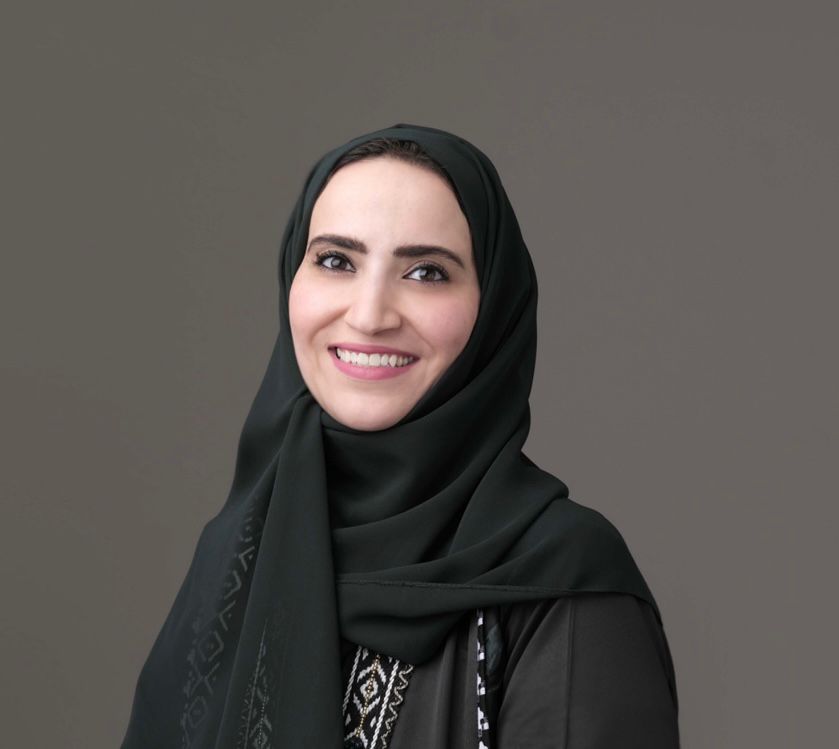
Dr. Amal Shugair, deputy minister for scholarships at the Kingdom’s Ministry of Education. (Supplied)
Shugair said that the Ministry of Education conducts its research in coordination with other ministries and departments on an annual basis to keep up with the demand for specific skills and areas of expertise.
“Some 40 percent of this year’s batch of scholarship students were women. It’s the largest yet since the start of the scholarship program,” she said. “The ministry selects the best 200 universities globally for various fields that can cater to the Saudi labor market’s needs, offering more opportunities for all to choose from.
“We’re being selective due to the demand of the market needs, so we’ve allowed students to enroll in master’s and Ph.D. programs, but only in specific fields and majors based on recommendations from the Kingdom’s Research Development and Innovation Authority.”
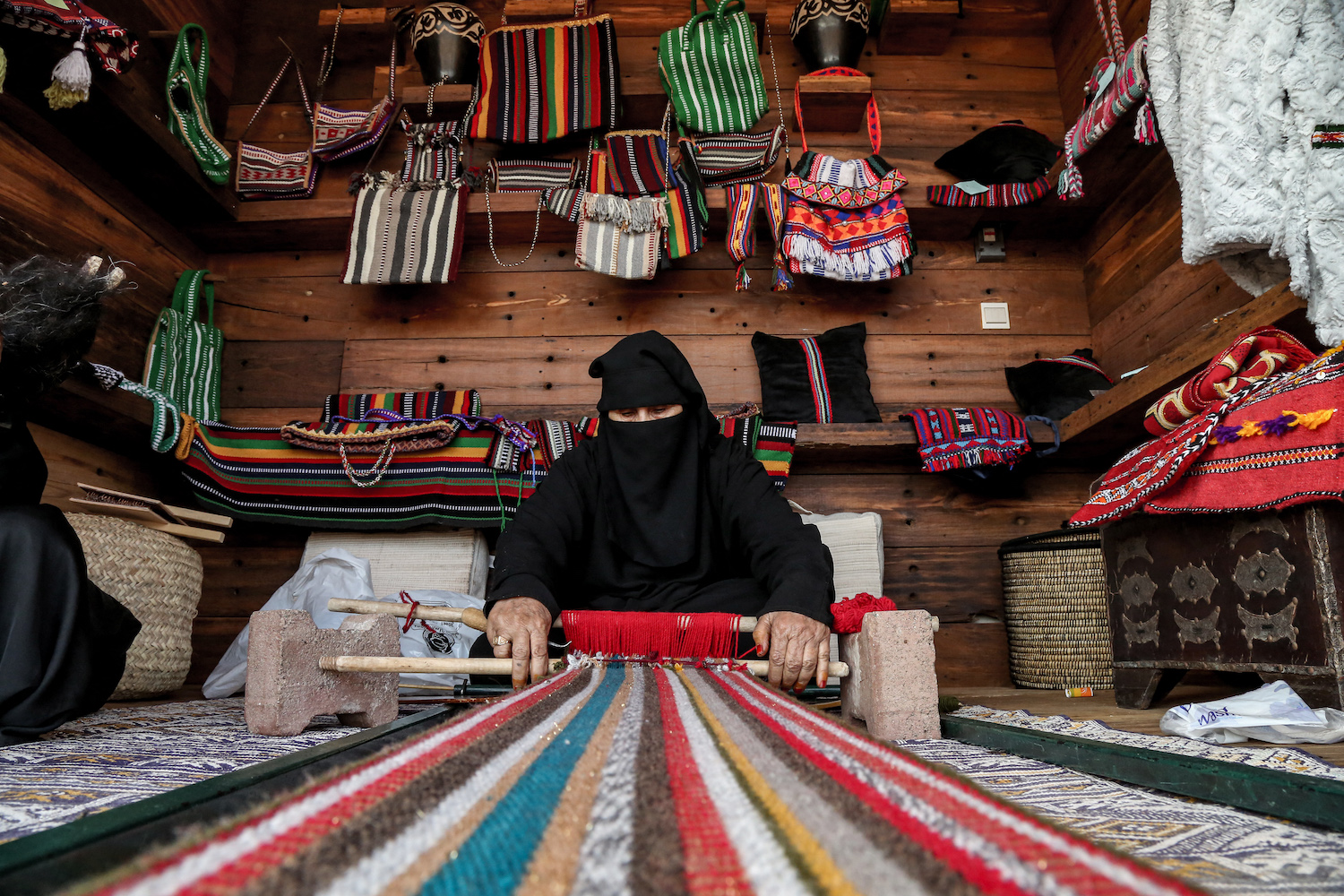
A woman operates traditional weaving looms in the old town of the Khaybar oasis in northwestern Saudi Arabia. (Supplied)
For the next decade, the ministry’s strategy is to support and empower certain members of society to provide equal opportunities for men and women through various initiatives, such as enrolling university students in internship programs or co-op training at companies before graduating.
“The 2022 strategy differed from previous strategies as it focused on the quality of the outcomes rather than the quantity (number of students),” Shugair said. “Our target is for students to enroll in elite universities, the top 30 universities all over the world.”
Although the number of female doctors and scientists continues to grow in Saudi Arabia, Shugair said that the mentality had changed for many as they seek to major in fields that have been closed off to earlier generations.
“Women today are thinking more strategically, finding pathways which can support them and help them excel given the opportunities,” Shugair said.
“They no longer fear the unknown, and are taking their first steps in their futures.”



